#and THAT is the real tragedy
Text
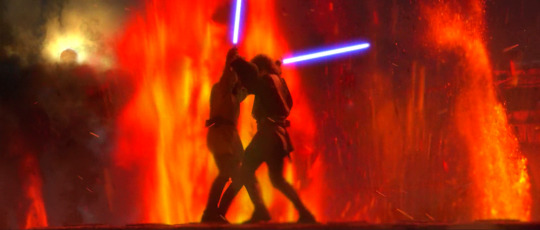
‘Revenge of the Sith may be the greatest work of art in our lifetimes...’
(an excerpt from a long-deleted blog post, archived here)
“Revenge of the Sith is still (and probably always will be) the greatest thing that will ever come out of the Star Wars franchise. I always go further, in fact, and say that it’s the greatest thing that will ever come out of big-budget, action/fantasy cinema at all. George Lucas’s final contribution to his Star Wars legacy—2005’s final prequel offering—was not only an artistic, cinematic and operatic masterpiece, but it was the ultimate, consummate manifestation of everything Star Wars was capable of being and, for that matter, everything that big-scale cinema is capable of being.
It literally does not—and probably can’t—get better than this ever again.
Lucas, who himself pretty much set the standard and invented the genre in 1977, had now taken us to the absolute zenith of what that genre of film-making could produce.
Epic, ambitious, stunning, moving, nuanced, and everything else, it was the glorious completion of Lucas’s original Star Wars saga that I had been waiting for—and something for which I will always be immensely grateful George Lucas came back to film-making to give us. I have already made the case at length for why Revenge of the Sith was an absolute masterpiece of staggering proportions, so I’ll refrain from re-stating here all the ... reasons I eternally bow at the altar of that film and its unfairly maligned architect.
People who didn’t get it or still don’t get it probably never will get it.
I’ve given up arguing with those on the tedious backlash bandwagon, those who join in with the Lucas-bashing for the sake of YouTube channel views, or those who, like [spoilt children] throwing a tantrum, bitterly disavow George Lucas and whine about how the prequels ‘ruined Star Wars’.
Someone who did get it, however, was the noted author and social critic Camille Paglia: she of course famously declared a few years ago that George Lucas was the greatest artist of his time and specifically that Revenge of the Sith was the greatest work of art in the last thirty years.
The respected, if often controversial, academic Paglia didn’t argue that Episode III was merely the best movie of the last thirty years… but the best work of art in any genre and in any medium.
[...] Predictably a lot of people either assumed Paglia was being sarcastic or they simply pooh-poohed her conclusions. Paglia, however, was not trying to be ironic, and she has reaffirmed and defended her position over and over again and with a passion—Lucas’s final Star Wars film, she maintained, is the greatest work of art in the last three decades.
[...] I cannot think of any film in any genre that has been as absorbing or as immaculate (or as ambitious). Even just conceptually, what Lucas tried to do with the prequel trilogy was staggering and is without any parallel. And while we could argue that the execution was off-the-mark in certain places, the sheer visceral power and broad artistic value of what he did manage to create—even with its various failings—puts Lucas’s saga (and ROTS in particular) into a different stratosphere entirely.
In her own view of it, Paglia especially focuses on the final act of the third prequel—the climactic finale centering on the extended Anakin/Kenobi lightsaber duel against the dramatic lava backdrop and the extraordinarily powerful way that the birth of the Skywalker twins is juxtaposed with the ‘death’ of Anakin and ‘birth’ of Vader. That latter sequence, by the way, in which the death of the mother coincides (and even feeds into) the birth of the ‘dark father’, all of it underscored by John Williams haunting, gothic choral/hymn composition, is just one example (among many) of Lucas’s extraordinarily acute and nuanced levels of vision.
‘The long finale of Revenge of the Sith has more inherent artistic value, emotional power, and global impact than anything by the artists you name,’ she said in this interview with Vice. ‘It’s because the art world has flat-lined and become an echo chamber of received opinion and toxic over-praise. It’s like the emperor’s new clothes—people are too intimidated to admit what they secretly think or what they might think with their blinders off.’
youtube
Speaking to FanGirlBlog, Paglia continued her celebration of Lucas’s final masterwork, saying, ‘I have been saying to interviewers and onstage, "The finale of Revenge of the Sith is the most ambitious, significant, and emotionally compelling work of art produced in the last 30 years in any genre—including literature".
Paglia’s assertions flowed from her 2012 book Glittering Images: A Journey Through Art from Egypt to Star Wars, which in part addressed the problem of modern cultural ignorance and the author’s worries that 21st century Americans are overexposed to visual stimulation by the “all-pervasive mass media” and must fight to keep their capacity for contemplation.
In the book, Paglia discusses twenty-nine examples of visual artwork, beginning with the ancient Egyptian funerary images of Queen Nefertari, and then progressing through various artistic works, including creations from Ancient Greece to Byzantine art and Donatello’s ‘Mary Magdalene’.
She explained, ‘Lucas was not part of my original plan for Glittering Images, which has 29 chapters crossing 3000 years. My goal was to write a very clear and concise handbook to the history of artistic styles from antiquity to the present. When I looked around for strong examples of contemporary art to end the book with, however, I got very frustrated. There is a lot of good art being made, but I found it overall pretty underwhelming. When I would happen on the finale of Revenge of the Sith, I just sat there stunned. It grew and grew on me, and I became obsessed with it. I was amazed at how much is in there—themes of love and hate, politics, industry, technology, and apocalyptic nature, combined with the dance theater of that duel on the lava river and then the parallel, agonizing death/births. It’s absolutely tremendous.’
Paglia also entirely recognised the sheer scale of Lucas’s creation and the value of even its various constituent parts as important or worthy works of art. ‘The fantastically complex model of the Mustafar landscape made for the production of Revenge of the Sith should be honored as an important work of contemporary installation art,’ she argued. ‘And also that Lucas’ spectacular air battles, like the one over Coruscant that opens Sith, are sophisticated works of kinetic art in the tradition of important artists like Marcel Duchamp and Alexander Calder. No one has ever written about George Lucas in this way—integrating him with the entire fine arts tradition.’
The problem is that Lucas and the prequel trilogy have become so widely misrepresented as ‘bad’ that most people don’t know how to deal with someone like Paglia sincerely proclaiming “Nothing in the last 30 years has been produced—in any of the arts—that is as significant or as emotionally compelling as Revenge of the Sith…”
[...] In fact, contrary to widespread misconceptions about how the Star Wars films are viewed, a Rotten Tomatoes poll ... found that Revenge of the Sith (and not Empire Strikes Back) scored as the best-regarded of the [Lucas] movies according to aggregation of archived reviews. So the idea that everyone dismisses the prequels seems like a misconception; but it is fair to say that a substantial body of people —including a lot of people who, rather incongruously, regard themselves as Star Wars fans—do completely dismiss this film along with its two predecessors.
As I said at the start, people who didn’t get it or still don’t get it probably never will get it.
But what has always struck me as pitiful about the whiny ‘Lucas Ruined Star Wars’ attitude is that it seems to flow from the premise that Lucas—a man whose stubborn commitment to his own singular vision gave an entire generation from the late 70s and early 80s unparalleled joy—somehow ‘owes it’ to those same people to do things precisely how *they* deem acceptable. That’s essentially what it comes down to—that he, as the artist, should make the art that the fans or the public want and not follow his own creative vision.
What people don’t realise, however, is that if he had done that from the beginning, there never would’ve BEEN an original Star Wars trilogy at all—and arguably all of these huge blockbuster SF/fantasy films that people spend their money seeing today wouldn’t exist either. What a lot of people also don’t realise is that Lucas was never setting himself up to be a populist or even mainstream filmmaker. On the contrary, he was the avant-garde film geek, the rogue, the outsider. The fact that Star Wars spiraled into a billion-dollar behemoth was an accident; and when the first Star Wars movie was released in 1977, it was an oddity that no one in the film industry understood or believed in.
But Lucas had stuck to his own creative vision—a vision that was largely incomprehensible to everyone else at the time the film was being made—and his singular vision hit the mark big-time and accomplished something unprecedented.
By the time of the endlessly-maligned The Phantom Menace in 1999 and everything that followed, Lucas was still doing exactly the same thing—following his own vision, trying to create something extraordinary and largely ignoring contemporary trends or opinion. The only difference was that the vast fan-base he had acquired from the original films were older now, far more jaded and over-saturated with blockbuster movies (most of which were influenced by Lucas’s pioneering work in the 70s) and they essentially didn’t *want* something new, creative or challenging—they just wanted the same thing they’d had when they were kids.
In effect, they weren’t interested in Lucas the artist or Lucas the pioneer—they only wanted Lucas the Popcorn Movie dispenser. But Lucas the Popcorn Movie Dispenser had never existed—he was simply an illusion created by the extraordinary commercial success of the Star Wars Trilogy.
What Lucas had in fact envisioned—and created—with the prequel trilogy, especially Revenge of the Sith, was something that transcended the whole summer blockbuster ennui, transcended genre, transcended the very medium of film itself, and could be discussed in the same breath as Shakespeare, Virgil and the Aeneid, Julius Caesar, and a number of equally fascinating and endlessly debatable works of serious and complex gravity.
But there was an audience of millions who were instead looking for something that could be discussed alongside Jurassic Park or Terminator 2. Which is fine—Star Wars of course can also be discussed just as validly in that latter context too; but it also exists in a stratosphere beyond it. And because Lucas’s process and vision was in that higher stratosphere a lot of the time, there was a frequent disconnect that occurred, whereby a lot of people were unable to meet him halfway or relate to the films on those kinds of levels.
But Lucas pushed on with his long-envisioned trilogy; and by the time the final installment of his Star Wars saga arrived in 2005, a sizeable proportion of the old fan-base had either departed or were by now just coming to the party for the thrill of seeing Darth Vader one last time. Some dismissed the film the same way as they’d dismissed its two predecessors, some were full of scathing mockery, while others were ambivalent. Some were suitably entertained, but didn’t take it much further than that.
Another group, a smaller minority—myself included—had just seen something of epic, overwhelming proportions and had the greatest cinematic experience of their lives.
But great art is like that.
Great works of art divides people, provoking endless debate [...] An argument could be made that the greatest artist will go all-out to create something special and substantive, even if it won’t appeal to everyone. Said artist would follow his own creative vision and not compromise it to the committee of consensus or demand.
Lucas, it should be borne in mind, never made ANY of the Star Wars films with film-critics in mind—even the Original Trilogy movies were not critically approved, despite becoming cultural landmarks. And interestingly, the hang-ups of many of those who were scathing about the prequel movies—ROTS included—were virtually identical to the hang-ups of the critics in the early 80s who either just didn’t get those original Star Wars films or were unwilling to praise a rogue filmmaker who was rebelling against Hollywood at the time and who was making something entirely out-of-step with contemporary trends and sensibilities.
Fittingly enough, the Lucas who was out-of-step with the sensibilities of the time during the late 70s and early 80s is the same Lucas who was equally out-of-step with sensibilities and trends at the time of the prequels too. In both eras, Lucas rebelled against the sensibilities of contemporary cinema and carved out his own piece of utter magic according to his own stubborn vision—the difference is that so many of the same people who adored what he had done in the first instance couldn’t understand what he was doing in the second instance.
Even though what he was doing was essentially the same thing.
For that matter, I always suspected that one of the main reasons so many people failed to appreciate (or in a lot of cases, to even understand) this film is precisely because it isn’t contemporary. That’s a key thing to understand about the Star Wars prequels—they were not made in a contemporary style.
Lucas doesn’t make contemporary cinema. Both of Lucas’s Star Wars trilogies are written and designed specifically to NOT be contemporary, but to have a more timeless quality, steeped in traditions from the past.
Lucas, you have to remember, has never been a contemporary or generic filmmaker, but a more avant-garde artist and experimenter who foremost specialises in tone and impressionism. The fact that he invented modern blockbuster cinema is purely an accident. As he himself once said, “None of the films I’ve done was designed for a mass audience, except for ‘Indiana Jones.’ Nobody in their right mind thought ‘American Graffiti’ or ‘Star Wars’ would work”.
[...] They were not contemporary or generic at all—consequently, a lot of people didn’t understand or relate to what they were watching: because they couldn’t find a point of comparison in popular culture.
To really understand these films, you have to go back to some of the historical epics of the fifties and sixties, particularly films like Ben-Hur, Cleopatra or Spartacus. If you watch any of those films (and all three are timeless, truly marvelous cinematic works) and then watch the three Star Wars prequels, it will suddenly make much more sense. The acting style, the dialogue style, the themes, the epic scope and settings, the vast mythologizing, the way the films are scored, even the intricate costume design—all of it.
There’s nothing surprising about that. After all, it’s easy to overlook the fact now from our current vantage-point, but the original Star Wars trilogy movies weren’t contemporary in style either—they were stylistically based on things like Kurosawa, Flash Gordon and the Saturday matinee serials of the 1930s and 40s. The original trilogy films made no stylistic sense in terms of contemporary cinema or sensibilities in the late 70s or early 80s—they were, in style, a homage to a long-gone era.
So too were the prequels—just a different homage to a different era.
[...]
When you look at everything that makes up Revenge of the Sith, the scope of vision along with the degree of artistic nuance and juxtaposition is breathtaking.
There’s lots of action, yes, as you’d expect; but the action, like so much of what Lucas was doing by this stage, is almost transcendent. Sure, the acting or delivery is off in a few places; mostly due to some of the actors having to perform in non-existent CG environments—remember Lucasfilm and ILM were breaking new ground technologically in these movies, which we take for granted now with all our CG and digital filmmaking, but which at the time were bound to cause some teething problems. But Ewan McGregor is superb in this film, while the maligned Hayden Christensen....in fact does a solid job in any number of key scenes.
And there’s everything else. The special effects aren’t just good, they’re actually often beautiful in a way that most special effects don’t aspire to be. The level of detail and artistry in the visuals mean you could turn the sound off and still be captivated. Some of the backdrops could make extraordinary paintings that could hang convincingly in art galleries. And Lucas is the absolute master of the establishing shot and the scene transition, turning it into an art every bit as nuanced as in a piece of music.
For that matter, the music is extraordinary—and actually if you look at how underwhelming or non-existent the music is in the post-Lucas ‘The Force Awakens’, it becomes clear that Lucas and Williams had a collaborative process that really influenced how these films were scored (and which is now no longer the case). Lucas himself said that the music was 50 percent of what mattered in these films and that is certainly evident.
Much of it, particularly the climatic Kenobi/Skywalker duel and that final act with the birth of the twins, death of Padme and creation of Vader, almost isn’t cinema at all—but opera. This could’ve been something Wagner was composing if he had ever existed in the cinema age.
In fact, the final few scenes of the film don’t even have any dialogue, but are purely musical and visual. Even some of the most stirring parts earlier on in the film are without dialogue; take, for example, the breathtakingly beautiful sequence of Anakin and Padme trying to silently sense for each other across the exquisite, sunset cityscape—it’s all visual, tone and subtle music, pure emotion with no dialogue. A scene like that could almost be part of a silent movie; and it’s also like an impressionist painting in motion.
Even that Kenobi/Skywalker duel itself is more than just an action sequence. With Williams’ epic, stirring, choral score, it too is opera. But it’s opera married to performance art: the level of intricacy, fluency and speed of Ewan McGregor and Hayden Christensen’s dueling is insane, having required an immense amount of prep and practise. The choreography takes it onto the level of dance; of true performance art as opposed to disposable cartoon violence or cheap blockbuster action.
Everything here—to the last detail—is choreographed like a ballet and it is spellbinding.
Yet while other filmmakers would try to sell an entire movie on such an exquisite centerpiece, for Lucas all of this—all of this poetry, opera, dance, music, visual art and everything else—is ultimately mere constituent part to a greater whole: a Shakespearan epic of a tortured fall from grace and a Greek tragedy... wrapped within an even larger epic about the fall of a Republic, the fallibility of religion and the genius of the Devil and failure of the angels.
[...] What Lucas created in fact was the ultimate expression/culmination of the art of the epic itself—fittingly enough, in order to conclude the defining epic of our modern times (what Brian Blessed once described as the Shakespeare of our age). The Shakespeare comparisons aren’t trivial. The evident Star Wars/Shakespeare resonance has even prompted things like Ian Doescher’s book William Shakespeare’s Tragedy of the Sith’s Revenge: Star Wars Part the Third—a retelling of Revenge of the Sith as if it had been written by William Shakespeare for real.
[...] Various observers, including academics, have noted the obvious fact that Lucas’s story is also a retelling of the fall of the Roman Republic and birth of the Roman Empire. Lucas himself admitted this, pointing to how Revenge of the Sith in particular is partly a story about democracies become dictatorships and citing the historical stories of Caesar and Augustus. You can quite easily watch the prequel trilogy alongside I, Claudius or something like HBO’s brilliant Rome series.
But none of those references or allusions are the important part. Even the fact that the prequel trilogy—and again, ROTS in particular—is quite clearly in part a story about false-flag wars, banking conspiracies, the corporate and military-industrial complex, the Bush administration and the Iraq War, etc—isn’t particularly relevant to the issue of why it’s such an epic work of significance.
Lucas is the author and architect of our preeminent modern mythology—as interviewer Bill Moyers asserted during his fascinating and revealing 1999 interview with Lucas (for the release of The Phantom Menace). Partly inspired by his friend Joseph Campbell’s thoughts on mythology, but moreover informed by his own careful distillation of elements from various cultures and civilisations (what he has referred to as our collective human ‘archaeological psychology’), Lucas is every bit as influential as Virgil, Homer or Shakespeare were in their respective times, and has crafted out the ultimate mythological saga.
Revenge of the Sith is the final, completing piece of that saga—the piece that gives the saga its full scope and true soul, and the piece that makes every one of the other films count for so much more.
And it does it so well—with such vivid and breathtaking quality—that, even having written an article as long as this one now is (and another before this), I still don’t feel like I’m adequately able to explain its full brilliance.
Neither could Lucas himself, I suspect. I’m not sure Lucas even realised how masterful it was; but, as Paglia and others note, the guy is so mild-mannered and self-deprecating that it simply wasn’t in his nature to boast about his own work. Instead he just took in all the abuse and mockery with mild bemusement, shrugged his shoulders and walked off into the twin sunset, knowing that with Revenge of the Sith he had finished what he’d come back to do.
In fact, what Lucas did was so extraordinary, so complex and so nuanced that it may take another decade or two for people to even appreciate it properly—assuming they ever do. As film experts like Mike Klimo have noted, some of what Lucas did in ROTS and the prequels may have been so sophisticated that he deliberately didn’t talk about it, but just left it there, not knowing that anyone would ever even notice.
This, as I said earlier, goes beyond cinema, and possibly even beyond Star Wars itself. Lucas genuinely outdid himself, and it is unlikely anyone will reach that height again—firstly because no one is going to be in the position Lucas was in again in terms of total ownership of a property, and secondly because no one is going to have that kind of ambition again, especially having seen how much of a backlash Lucas received from the legions of popcorn munchers, YouTube profiteers and ungrateful fans who were really looking for something much more in keeping with a generic, formulaic, standardized blockbuster formula.”
#the prequels#revenge of the sith#rots#george lucas#prequels appreciation#lucas' star wars as created-myth#Paglia is an expert on the Fall of Civilizations#which explains her fascination with RotS in particular#as for the blogger who wrote the post...i don't necessarily agree with every single thing he says#particularly his view on some of RotS' themes#(he seems to miss the fact that the Prequels are not about love as a negative element but are rather about the Fear of Loss )#(Anakin's tragic flaw is not Love but rather his FEAR losing his loved ones to Death)#but there's enough here i found worthy of sharing (and you can read the rest on the wayback machine link)#ultimately i feel that the inability of contemporary audiences to appreciate Lucas' work#is very much akin to the bafflement with which Tolkien's work was met in the mid-20th century#Tolkien was writing in deliberately archaic medieval tradition during the very height of the Modern era#and similarly ...#Lucas was making homages to old-fashioned cinema/Greek tragedy/and mythic Romanticism during the peak of cynical Post-Modernism#audiences seem to have truly have LOST the ability to comprehend older forms of storytelling#and that is the real tragedy
26 notes
·
View notes
Text
it's so great that in greek tragedy there are only three paradigms for a woman leaving her house (her wedding, her funeral, and maenadic rites) and they're all kind of the same thing also
#this is very much entirely in the realm of the cultural imaginary#in real life ancient greek women (of all classes) did indeed leave their houses for a wide variety of reasons apart from these#but tragedy doesn't acknowledge them and instead suggests a world in which these are the only three legitimate reasons a woman leaves home#and thus tries to understand everything else in terms of these three paradigms#mine#reading
3K notes
·
View notes
Text


He does this every time they end up in a windy place😔 doesnt even have to be that windy honestly, he'll just do it
#vaderfett#darthfett#the real tragedy is that he still believes that he is being SO sneaky#i wonder how much his cape weighs since its made out of armourweave#mf thinks hes being playful while boba is fighting for his life#big dumb cat energy
2K notes
·
View notes
Text

Bare skin, bare feelings.
[First] Prev <–-> Next
#poorly drawn mdzs#mdzs#lan wangji#wei wuxian#blood#Imagine coming off as homophobic to your crush so bad he weaponizes a strip tease against you.#LWJ is just having a storm of bad emotions. His tummy hurt real bad and he was just trying to be brave about it!#WWX is just trying to be a good bro and heal his friendcrush. It worked but not for the reasons he thinks it did.#LWJ's shyness is also hilarious here considering they have bathed together before. Literally nothing there he hasn't seen before.#Granted it was a few years back and before he was left to stew in his feelings.#LWJ is more focused on his pride than being responsible and reasonable (getting is wounds treated).#His arc really is about accepting that he can't be perfect. That there is importance in being honest and vulnerable.#The tragedy is that he realizes this way too late.#Pride is the worst sin because it destroys your ability to protect anything other than the smallest crown in the world.#When everyone is gone and you are left alone - was it worth it to feel safe and protected from showing your flaws?#Control over oneself is in conflict with connection to others. You cannot pick both.#Hanguang-jun appears to us as a 'perfect guy' but the truth is that he is the version of LWJ who is done with *needing* that validation.#And this time - He can properly reach out to those he wants to be close with.
1K notes
·
View notes
Text
'Oh God, they're beside me again, aren't they.'
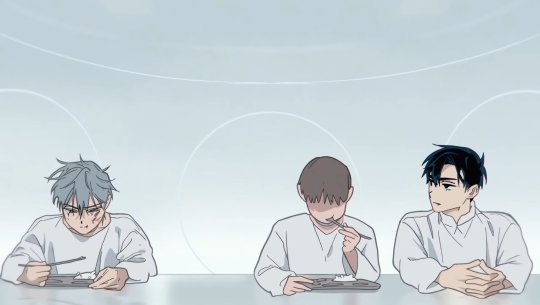
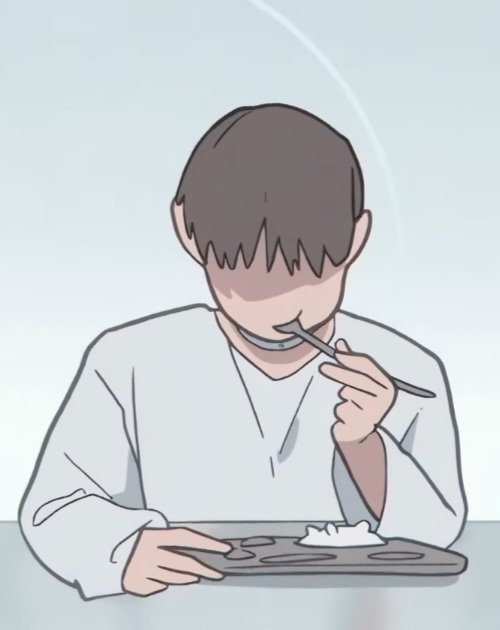
LMFAOOO WHAT DID THIS GUY DO TO DESERVE THIS. imagine just sitting there, eating your lunch peacefully while one of your comrades (he's not even eating food, wtf is he doing there) goes and harass the other one once again with his weird homosexual activities (wiping the other's blood and licking it???). I'd lose it, personally.
#alien stage#alnst#에이스테#ivantill#the real tragedy is all the ppl that witnessed ivan being a weirdo when they were kids#being stuck between ivantill must be so annoying#you got this guy who keeps staring at this roughed up looking kid#its the equivalent of someone staring at their crush in class and you happen to be in between#awkward as hell
716 notes
·
View notes
Text
ao3
A gnawing sense of foreboding creeps up on Steve as they head to Eddie’s trailer, armed with weapons.
He tries to outrun it through action: ensuring he’s the first one to go through the Gate; jumping back and forth between The Upside Down and their world whenever someone forgets something, “It’s okay, I’ve got it!”; triple checking that the cables for Eddie’s amps are long enough; searching for the slightest thing than seizing upon it with an enthusiasm bordering on desperate, “Hey, we could use this, right? Better take it, just in case.”
But that only works for so long, and then Steve’s just standing in Eddie’s kitchen, the real one, staring blankly at the cupboards, all out of distractions.
Out of time.
He hears a grunt of exertion behind him, then an unsteady landing, a muffled curse. Eddie.
“Jesus Christ, Steve. Wanted to fit your aerobics routine in?”
He’s teasing, so light-hearted despite it all; Steve can’t stand it.
Keeps his back turned, gut twisting, opening the cupboards then slamming them shut, thump, thump. He doesn’t know what he’s looking for. He never has.
“Uh, so I was thinking,” Eddie continues, like Steve’s not doing anything weird, “that I could stretch out the, um, the song? My playing? Could buy you some more time, anyway.”
“Sure, great,” Steve says shortly.
He thinks—with a numb kind of calm—that he’s going to be sick.
He gets to the bathroom, tries to shut the door, but his grip slips on the handle.
Turns on the faucet, scoops cold water from his hands into his mouth, and it helps until it doesn’t, until he’s almost choking on it, and he’s been here before, the feeling familiar: a shadow looming over him, just waiting, waiting, and he knows it’ll pass, it always does, but he can’t stop thinking of Robin, it might not work out for us this time, and what if, what if—
He can hear Eddie knocking on the doorframe, just out of view—as if he’d seen Steve’s failed attempt at shutting the door and wanted to respect it.
“Hey, man, you okay?” Then Eddie mutters to himself, “Obviously not, get a fucking clue.”
Steve’s laugh is strangled but real. He wipes his mouth dry and shuts off the water.
“You don’t need to talk to a wall, dude,” he says.
And Eddie steps into view, leans against the open door. His eyes flicker across Steve’s face, and Steve doesn’t want to know what he’s noticed, so when Eddie opens his mouth hesitantly, he speaks first.
“We should—they’re gonna wonder where we are.”
Eddie pauses on the verge of speech; Steve watches him reevaluate whatever he was going to say.
“Well,” Eddie says, gesturing to the bathroom, matter-of-fact, “we could be peeing.”
Steve manages a chuckle. “You’re an idiot.”
Eddie grins like he’s saying yup, that’s me, like he’s won a prize.
Steve has seen him wear something close to that expression not even an hour ago: when the kids had started a line to use the bathroom in the RV, and Eddie had snorted, giggled with a childish kind of delight, “You—ha! You all look like you’re on a field trip,” before joining the line himself—calling out that he hoped their plan accounted for bathroom breaks because, “There’s no way I’m pissing in the alternate dimension,” and that had made Nancy break, laughing in a way Steve was certain he hadn’t heard since ‘83.
Eddie steps into the room and shuts the door quietly. Steve gets why: his breathing’s still all wrong, and if Dustin happened to see him, he doesn’t think he’d ever forgive himself.
“Sorry.” Steve sucks in a breath, tries to hold it. Loses it in an exhale that shudders at the edges. He speaks through the tail end of it, hoping that’s enough to conceal the sound, “Gimme, like, two minutes.”
“Make it ten,” Eddie says.
The way he says it makes it seem like it’s already a done deal; he must’ve spoken to Robin and Nancy before he tumbled through the Gate.
Despite himself, Steve feels a wave of relief: just for a little while, he has time; it overpowers the shame, leaves him sinking down to sit on the closed toilet seat.
He closes his eyes, just breathes. In… out… in…
He doesn’t realise that Eddie’s sitting down, too, until he hears the clunk of his boots, the rustle of clothing as he moves.
“Sorry,” Steve says again, and it annoyingly still comes out a little shaky, like he’s in the pool and he’s left it too long to snatch a breath. “You can go back, man, I’ll… I’ll be right there.”
He opens his eyes to see Eddie shaking his head, sat with his back against the bathtub.
“Stop apologising,” Eddie says, and then it’s as if the seriousness of it is too much for him, because he adds, with a self-deprecating smile that Steve hates, “I get it. You’re walking into the dragon’s lair, I’m just putting on a concert.”
“Don’t,” Steve says, and he doesn’t intend for the word to come out as sharp as it does, but that doesn’t change the fact that he means it. He means it.
Eddie’s smile fades.
“Don’t,” Steve repeats, quieter. Not quite an apology.
Slowly, he moves off the toilet seat, until he’s sat next to Eddie. There’s just enough space that they don’t need to touch, but Steve presses his shoulder against Eddie’s anyway, like he can somehow pass on everything he means through that alone.
Eddie sighs, presses back for just a second. “Don’t what?” he asks. He sounds tired all of a sudden.
“Don’t—don’t joke like that,” Steve says. “Like you’re not—” He swallows. “Like it’s not dangerous.”
There’s a pause. Eddie reaches across and puts a hand on Steve’s knee. Squeezes briefly and pulls back; already Steve finds that he misses the warmth of him.
“Hey, don’t worry,” Eddie says. There’s no joke in this, not a trace. “I’m not gonna let anything happen to Dustin.” Another smile. Gentle. “Swear on his mother.”
I’m not worried about that, Steve wants to say, but of course that’s not true; he’s tried hard not to look at Dustin directly ever since they arrived at the trailer, because his throat would start to close up alarmingly whenever his gaze lingered, and he knows the kid’s doing that whole semi-aloof teenager thing lately, but a part of him still wants to hold him tight and never let go.
It’s more that the shape of Steve’s worry is different to what he thinks Eddie’s imagining, covers more than Dustin’s safety alone—that the cold dread in his stomach brings him back to the tunnels in ‘84; to clutching Dustin, who was so small, Steve desperately trying to shield him with his own body, thinking the kid’s thirteen, only thirteen, this isn’t fucking fair; and that if this had to end one way, all he could do was pray that he’d be the only one to…
And Steve hadn’t wanted to die, but he was suddenly facing it anyway, and Christ, looking back at it, that was crazy, the whole damn thing was crazy, but it all made a twisted kind of sense at the time.
Eddie must spot that his train of thought’s gone down a dark alley because he knocks their knees together, but he doesn’t say anything. Just breathes, slumped against the bathtub; it’s probably the first time he’s been still—truly still—in a long while.
He must be exhausted, Steve thinks.
The gnawing feeling digs in, grips his heart.
“I can hear you thinking,” Eddie says quietly. “Listen, Steve, I know I’m new to, uh… all of this shit, but I’m on it, okay? Got it all up in here,” he taps the side of his head, “trust me—”
That’s not what—I trust you, of fucking course I do, but—
“—no deviations, and—”
“Plans change,” Steve says, and he hears himself, the calm decisiveness, just get ready; Dustin’s scream carrying across the junkyard, Steve, abort, abort! “Just… just promise me.”
“Promise you?” Eddie murmurs.
Steve feels the words on his tongue, the weight of them. Don’t do anything stupid.
He swallows them down—afraid suddenly that if he really puts a name to it, it’s going to happen.
Fuck it, he’s exhausted too, and for a long moment he evades speaking: gingerly rests his head on Eddie’s shoulder. Feels his body heat, the swell of his breathing.
Eddie doesn’t tense up, just lets him rest there.
If I kissed you, Steve thinks, drained, would you stay?
He doesn’t say it. Instead he lifts his head and asks, “What are you doing tomorrow?”
Eddie chuckles. They’re still so close, Steve can feel his amused sigh.
“Tomorrow? I’ve not really… like, hopefully I’m not in jail. Anything else is a bonus.”
“We’ll fix it,” Steve says fiercely. “Trust me.”
“Oh, I believe you,” Eddie says, grinning fondly, but he sounds genuine. “Shit, man, I think you could do anything.” He gestures outside. “Got the fucking dream team out there.”
“We solved a secret Russian code last summer.”
Eddie laughs. “Did you?” His eyes sparkle with mirth.
You’re beautiful.
“Gospel truth, I swear,” Steve says. He tries to stay light, but he makes the vow anyway. “I’ll tell you tomorrow.”
I have so much to tell you.
They stand up, and Steve doesn’t know who’s the first one to move—just that they both probably sensed the time dwindling.
And maybe it’s that, the inescapable thought that something’s coming to an end that does it. Steve doesn’t know for sure, just knows that his eyes are burning suddenly—mortifyingly—with tears. He looks up at the ceiling, hurriedly trying to push them back, but Eddie notices anyway.
“Steve, what is it?” he whispers, with a look of utter devastation.
Steve shakes his head. “Just being stupid,” he says, voice brittle, cutting himself off before he can say something ridiculous.
God, Eddie, let’s just stay here and grow old.
“You’re not stupid,” Eddie says, heartfelt—he stops just short of touching Steve; he clearly wants to help so badly, but he doesn’t know how.
Steve wants to tell him it’s fine. He doesn’t know either.
Maybe nothing can help this.
They leave for the Gate in unspoken agreement; at first Steve finds comfort in the sight of Eddie dangling on the rope, not quite in either world. Like every possibility is laid out before him.
I’ll tell you tomorrow.
But there’s a near imperceptible shift as Eddie keeps climbing, and Steve needs to look away, anything to avoid the pit in his stomach: the suspicion that the path’s already been chosen.
#they’re all just scared kids#Steve “desperately trying to escape a tragedy” Harrington#Eddie “if I make a joke it isn’t real” Munson#steddie fic#pre steddie#steddie#steve harrington#eddie munson#steve x eddie
436 notes
·
View notes
Text
If Katara became Fire Lady, the person who this'd suck the most for isn't actually Aang, it'd be Bato's kid (or whoever's mum or dad happens to be good friends with Hakoda). Can you imagine? Your mum's voice?!?! Hakoda's kids are your age and they're out there being chief of the SWT and co-ruling over the Fire Nation. Who are you chieftain of?? You can't even govern a penguin. Disgusten.
#zutara#atla#a moment of silence for bato junior#the real victim of this tragedy#press f to pay respects
554 notes
·
View notes
Text

hey guys i have my guesses about what this could be referring to but Please i need to know everyone's vibe checks on this. what tragedies do yall see in the future of the suckening?
#jrwi#jrwi show#the suckening#jrwi the suckening#i am banging my head against a wall#since it's bizly saying this mayhaps it has to do with shilo's mom?#although i have other tragedies in mind that could happen at the end of the suckening#i am so convinced the main PCs are going to end up tragic and dead like both#the real tragedy is that deacon and arthur haven't had an onscreen kiss yet tho smh
378 notes
·
View notes
Note
hellololo! could I request an androgynous/gender neutral selkie themed agere moodboard? could just be seal themed if selkie is too hard!
Here you go!!

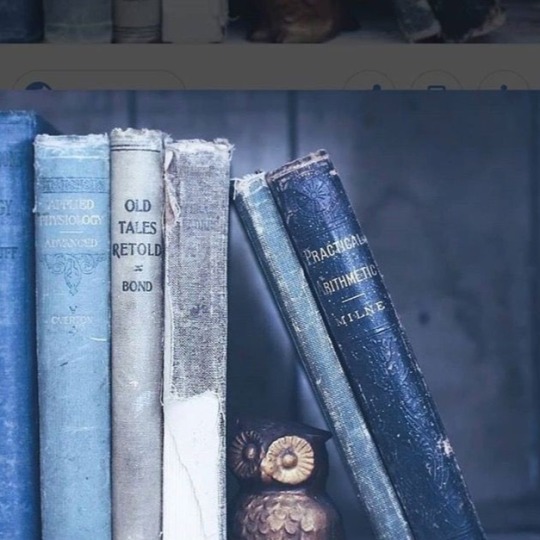

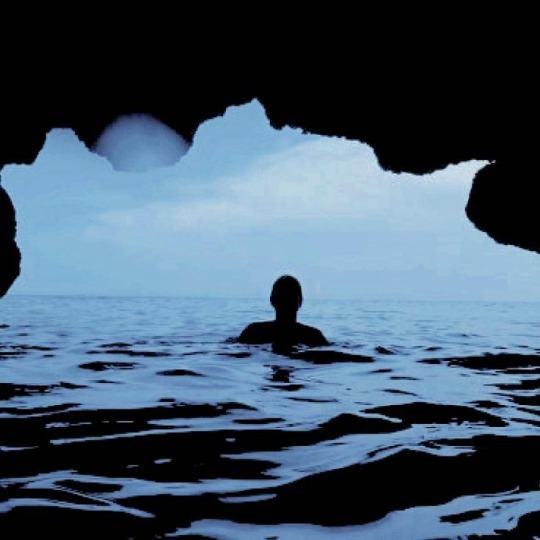

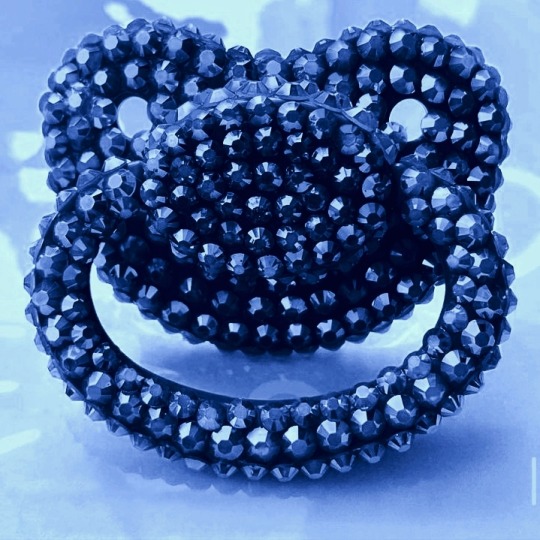

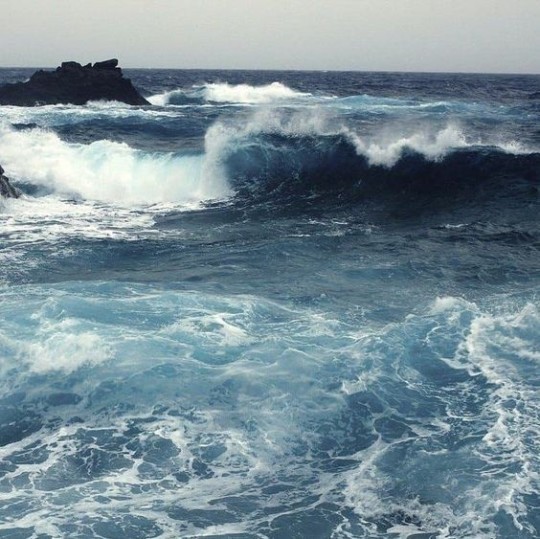
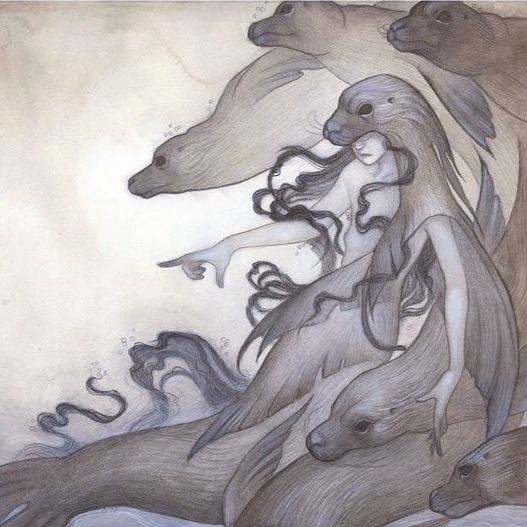

#selkie#!!!#this one was harder than I expected#there aren't any real gender neutral selkies out there#what a tragedy#but i hope you like it#despite the world's lack of imagination#sfw interaction only#moodboard#sfw agere#age regression#agere#sfw littlespace#agere moodboard#babyre#age dreaming#baby regression
303 notes
·
View notes
Text
i think it's time for fandom to accept that some AUs are simply A Bad Idea. your lilo and stitch au with two white dudes is a bad idea. your portrait of a lady on fire au with men is a bad idea. your encanto au with a white family is a bad idea. culture and gender and race *matter* in many source texts, and erasing or appropriating that in order to see your two favourite white guys hug is, you guessed it, a bad fucking idea.
#how about let's not put those particular guys in that particular situation#fandom racism#fandom misogyny#this isn't even touching on people creating aus based on actual real-world tragedies#like fucking holocaust aus#don't fucking do it!#these are all aus i have personally seen written/discussed btw#wish to god i were strawmanning but alas
895 notes
·
View notes
Text
ultimately i will always be fine being the mean nasty problematic aro cause guess what. you bitches wouldn't like me if i was the sweetest most niceys guy on earth either. so i think i will just make posts about my frustration with allo people without censoring myself for the sake of mollifying some bitter losers on an ego trip with nothing better to do
#for real if you're on the internet pushing ace exclusionism in the year of our lord 2023 i am laughing SO hard at you#this long and you STILL haven't gotten a life? jesus christ. what a pathetic tragedy#anyway tee hee i love receiving hate anons negative attention is still attention#talking#aromantic#aromanticism#arospec#aspec
381 notes
·
View notes
Text
I'd love more exploration of Rex perhaps feeling like he got kind-of the short end of the stick in terms of Jedi. He LIKES Ahsoka, for sure, she's got a spirit he admires and she's tenacious and it's hard not to care for her. And Anakin is, well, powerful for sure and friendly enough, so for a while Rex thinks he came out pretty well with his Jedi.
But then he starts meeting other Jedi or working alongside other Jedi and he realizes how much more competent other Jedi often are, especially the more experienced ones. And while Anakin is friendly enough, he's seen a lot of the other clones have MUCH closer relationships to their Jedi and certainly none of THEM ask their captains or commanders to lie to superior officers about secret relationships or unsanctioned missions. He's a little surprised once when he notices pretty much every other Jedi remembers that the clones can't always keep up with the Jedi and will unhesitatingly adjust their battle strategy to accommodate it. He sees the way other young Padawans are being taught to do something similar, to really consider the lives of the clones when they're in battle as the higher priority rather than the success of the mission.
And Rex starts wondering what his life might be like if he had ended up with a different Jedi. He loves his men, he's proud of the work they do most of the time, and he doesn't DISLIKE the Jedi he ended up with, but sometimes he's kind-of jealous of some of his brothers and wishes he'd gotten their Jedi instead.
#star wars#captain rex#anti anakin#anti anakin skywalker#anakin critical#anakin skywalker critical#and then he meets kanan and ezra in rebels and realizes he finally got exactly what he always had secretly wished for#he's got a real jedi now#he's got one of the GOOD jedi now#as much as kanan doesn't really trust rex yet he still came back to save the clones from the empire#and that one moment tells rex more than anything else kanan says or does#anakin never would've done that#he never would've come back to save someone he didn't trust and didn't like#not without an ulterior motive anyway#anakin would've considered their deaths an unfortunate tragedy probably#but that it was more important to get his own people to safety#kanan chose to turn around and put his life on the line instead#and so teaches his padawan to do the same#because all life is precious. even if you don't understand it or don't like it. ESPECIALLY if you don't understand it or like it.#so rex chooses to follow kanan#because he didn't get to choose his jedi before this#he wouldn't have chosen anakin if he'd HAD a choice probably#but he gets to choose now#and he didn't WANT to be a soldier again#but kanan came in and inspired him and reminded him of that long ago wish he once had to follow a jedi he truly respected#and so he chooses kanan now the way he never chose anakin
288 notes
·
View notes
Text

First his game is a flop and now this. Theres a fine line between criticism and harassment.
Reviewers have blood on their hands.
736 notes
·
View notes
Text
SPOP is full of tragedy, but there is nothing so quietly tragic as Light Hope's little "Warmth. Her memory brings me warmth."
#SPOP#She Ra#crying for a thousand years#on account of the reprograming. Adora spent very very little time with the 'real' Light Hope.#and even after she's gone the same voice actress dubs Darla#which is also so. quietly tragic.#Light Hope is the quietest tragedy.#Mara and Adora and Catra and Glimmer#everyone's tragic is central and scored by incredible music#Light Hope's tragedy is in these quiet little moments
229 notes
·
View notes
Text
do you guys ever think that furina hates the concept of eternity after everything that happened in the archon quest? humans tend to like the concept of eternity and immortality, and hate the change that comes with life (like death, moving to a new place, quitting a job and getting a new one, gaining and losing friends and lovers) but what about furina?
she was forced to keep up this act 24/7 for 500 years, which, to a human who had no prior experience with life, that mustve seemed like an eternity. days bled into weeks into months into years into centuries, and the lines between centuries began to look a lot like eternity. and it was all terrible for her, so interminable, so lonely, so painful.
so do you think she loves change now? do you think she ever sits out in a grassy field and watches the wind blow some dandelion seeds through the air, and thinks about the people she knew centuries ago, and lets them go just like those seeds?
has she let go of neuvillette? does she ever think about him when she looks out the window of her apartment at night, unable to sleep? or has she forgotten him and his memory, hundreds of thousands of trials gone by, centuries working side by side, several empty cups of tea stacked on his desk late at night, several bottles of water imported from the other nations that he wanted her to taste so badly?
if she hasnt let go, does she want to? if she has, does she wish she hadnt?
or what if she couldnt help but to forget him? what if the events in fontaine forced her to just. let go and move on? what if shes let go of him, but she wishes she was able to hold on and
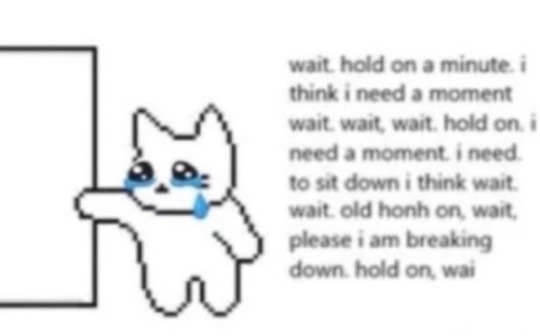
#neuvifuri#neuvillette#furina#theyre so tragedy coded#ive been thinking about them nonstop for the past 24 hours#the neuvifuri brainrot is real#its so sad im so devastated over them#my genshin headcanons#genshin#genshin impact
138 notes
·
View notes
Text

"The last one left."
Consider: all the Olympians except Apollo fade somewhere far in the future and he's left alone without his family <3 realistically he would be one of the first ones to go because of his domains but let's overlook such futile details for the sake of this scenario
#i like to put this man in situations#specifically very stressful ones#it's cathartic#trials of apollo#toa#pjo#apollo#lester papadopoulos#percy jackson#this took me so long to render but only because i couldn't decide between ten different versions that had like#one single different detail each#i did it tho!! the indecisive libra allegations aren't real#really happy with the theatre-y vibe i got#could be a tragedy#maybe it is#lonely thoughts#my art
313 notes
·
View notes